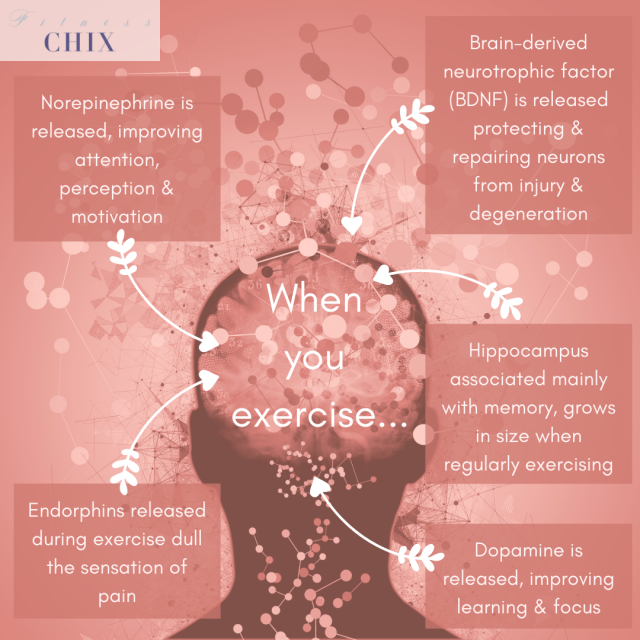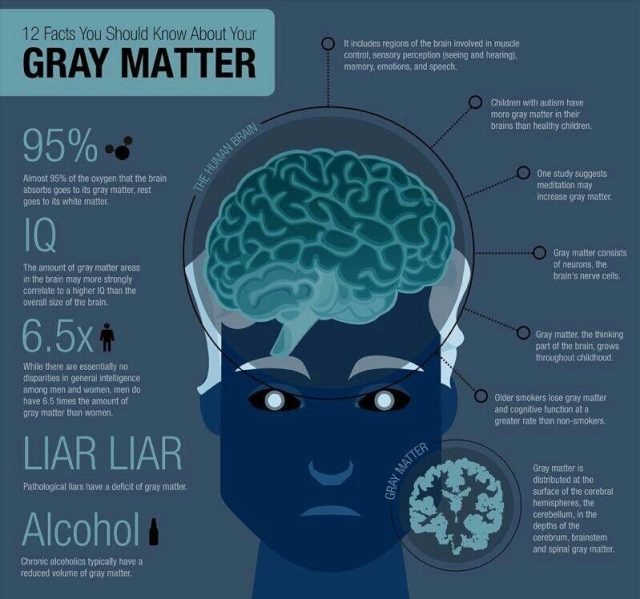Why our brain loves to exercise

Do you have a love hate relationship with exercise? Well your brain loves it and here’s why.
When you dedicate time, energy and effort into jumping on your bike, rolling out your yoga mat or taking a dip in the pool, you are enhancing your brain’s function. This means you are supporting your brain health.
Many tend to forget brain health is a major component on how your body functions.
BRAIN HEALTH
Brain health is incredibly important for women in particular because Alzheimer’s is one of the top diseases that is more common in women than in men. There are ways to spot and prevent the onset of this, I highly recommend The XX Brain, for those who want to read more around this topic1. However, you can make a major difference in terms of how your body is functioning and, as a result, how your brain functions2.
There are many topics I discuss around brain fog, scattered memory and how to regain focus within my Elevate Success: Leadership Formula3, so here is why we need to preserve our mental and cognitive health.
THE SCIENCE ON BRAIN & EXERCISE
A study that included 454 older adults, underwent physical and cognitive testing for 20 years and agreed to donate their brains for research upon their death4. All participants were given accelerometers, that tracked their movement and overall physical activity.
Participants who moved more, scored better on memory and thinking tests. Every increase in physical activity, by one standard deviation, was associated with a 31% lower risk of dementia.
In another study, a group of sedentary older people, with a mild cognitive impairment, were assigned several options within the study.
They could either participate in aerobic exercise 3x a week, 45 minutes per session.
Eat a healthy diet or combine aerobic exercise with the healthy diet advice or plan.
This study spanned across 6 months, those who followed the diet alone did not improve on assessments that were defined as executive functional tasks. Tasks such as planning and problem-solving. Those who exercised showed improvements in thinking and memory.
BRAIN BIOLOGY
Why does our brain love to exercise? Well, the benefits include:
> Increased blood flow to the brain
> Reducing inflammation
> Lowering levels of stress hormones
> Promoting cardiovascular health
Exercise can provide physical benefits to the brain because it increases thickness of the cerebral cortex whilst improving the integrity of your white matter. It enhances the nerve fibers connecting areas of the brain’s nerve cell-rich grey matter5.
Dr. Wendy Suzuki, a neuroscientist at New York University, studies neurological impacts of exercise and identifies benefits to our brain as short- and long-term rewards6.
Dr Suzuki describes the brain building brand new brain cells, whilst changing the brain’s anatomy, physiology, and function! She describes exercise similar to giving your brain a neurochemical bubble bath. This regular bubble bath helps protect your brain in the long term for conditions such as Alzheimer’s and dementia. As mentioned above, this is crucial for women during their perimenopausal and menopausal stages when hormones effect the brain health significantly1.
POST EXERCISE BENEFITS TO THE BRAIN
When we train, our body releases chemicals such as dopamine, serotonin and noradrenaline. All these serve to enhance your mood and memory for up to 3 HOURS post training!
In August 2020, Dr Suzuki asked participants to do a 5-minute anxiety assessment and then surprised them with a 10-minute workout. When the participants took the test again, their levels of anxiety scores decreased to that of a normal level.
BRAIN BOOSTING BENEFITS
My Elevate Success: Leadership Formula, is where I support my clients through training that increases overall energy but doesn’t demand a lot of your time. Many people believe to train you need to dedicate a lot of time, energy and effort but this isn’t the case because consistency is key.
Within my program, that is tailored to each individual, we go through simple and consistent training that supports your mobility, flexibility, strength, and conditioning. This is why this formula works. Little and often gives you the dose response your body and brain need. Regularity and accountability create successful leadership habits.
ONLINE BRAIN TRAINING
According to Dr Suzuki it’s not weird to workout in your living room either! Online fitness has become the norm because it’s convenient and accessible. Dr Suzuki also advocates this in her article on TED.com and she supports training and finding what best suits you and your needs6.
The key is to find something that works for you!
If you want to kick start your mood, regain energy and find out how my Elevate Success: Leadership Formula
can support your needs, simply book onto a free 30-minute consult with me.
Let’s figure out a strategy that is catered just for you!

References: 1- The XX Brain by Dr Lisa Mosconi 2 - How Exercise Protects Your Brain's Health – Cleveland Clinic 3- Elevate Success: Leadership Formula 4- Physical exercise and activity may be important in reducing dementia risk at any age | Neurology 5-Need a Memory Boost? Doctors May Prescribe Jumping Jacks – Cleveland Clinic 6-Why your brain loves it when you exercise, plus 3 easy ways to work out at home | (ted.com)
Tulshi Varsani
Tulshi is a highly experienced coach with a passion for supporting both corporate and sporting clients to enhance their wellbeing and performance. She applies research led practices to monitor and test, enabling her clients to achieve long-term growth and development. Tulshi was the first Performance Manager and Coach for the 8x World Championship winning Mercedes AMG Petronas Formula One Team. Her responsibilities included managing the race team performance-testing and training programs. Including factory wide health & wellbeing initiatives. Tulshi is also a part of the Board of Advisors for a company LTAD. LTAD is a training pathway for young athletes within strength and conditioning.